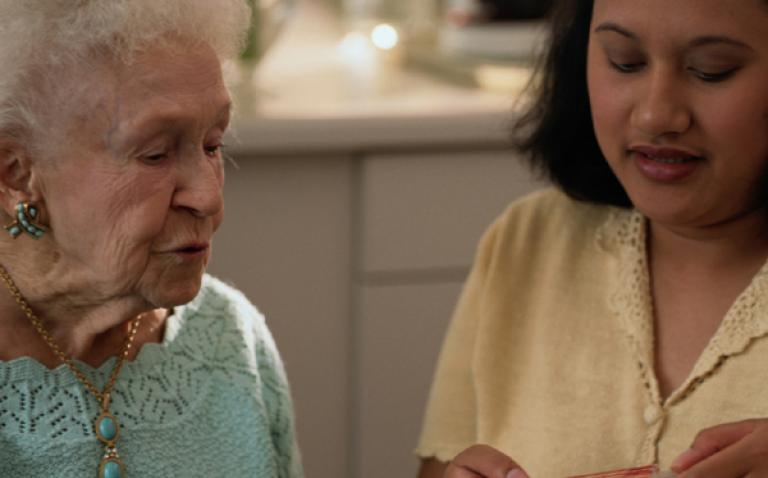A new report reveals that the burden of dementia the UK economy is twice that of cancer, yet dementia research receives one twenty sixth of the money that goes to studying cancer.
The UK’s leading research charity for dementia, the Alzheimer’s Research Trust, commissioned the University of Oxford to produce the report, “Dementia 2010”. The charity’s Chief Executive, Rebecca Wood, told the press that:
“The true impact of dementia has been ignored for too long. The UK’s dementia crisis is worse than we feared.”
“This report shows that dementia is the greatest medical challenge of the 21st century,” said Wood.
Following in the wake of the government’s National Dementia Strategy, the charity’s new major report reveals that dementia costs the UK economy £23 billion a year and affects 820,000 people in the UK, 15 per cent more than previously thought.
The bulk of the £23 billion of annual cost is the £12.4 billion met by unpaid carers, followed by social care costs of £9 billion, health care costs of £1.2 billion, and productivity losses of £29 million, says the report.
The huge burden of cost met by unpaid carers represents 1.5 billion hours provided by relatives and friends. The social care cost is the long term institutionalisation of an estimated 304,850 patients in care homes.
Paul Burstow MP, Liberal Democrat Member of Parliament for Sutton and Cheam, writes in the foreword that:
“Dementia costs the UK twice as much as cancer, three times as much as heart disease and four times as much as stroke.”
Yet when it comes to funding research, it appears that dementia is the poor relation, writes Burstow, explaining that:
“For every one pound spent on dementia research twenty six pounds are spent on cancer research and fifteen pounds on research into heart disease.”
The report defines dementia, the most common form of which is Alzheimer’s disease, as a group of symptoms associated with “a progressive decline of brain functions, such as memory, understanding, judgement, language and thinking”.
People with dementia are at higher risk of developing physical and health problems and rely increasingly on receiving care from other people, the health care and social services system.
The report also confirms a “diagnosis gap” between the expected number of people with dementia and the number on GP registers. For example in England, less than one third of the expected number are on GP lists.
It suggest this could be because of the low rate of diagnosis by GPs, caused by lack of training and confidence in diagnosing the condition, an issue that was highlighted in a recent National Audit Office report.
In an attempt to explain why dementia research should be so poorly funded, the report highlights a number of problems that also affect stroke research, for example, it could be that:
“Both stroke and dementia are still largely perceived as untreatable diseases, which are difficult to research and occur mainly in the elderly population.”
Also, unlike cancer and heart disease:
“Stroke is mostly treated by generalist doctors while there is still no international consensus about which medical specialty should diagnose and treat dementia.”
The report proposes that this attitude could be preventing health professionals from applying for research funds.










